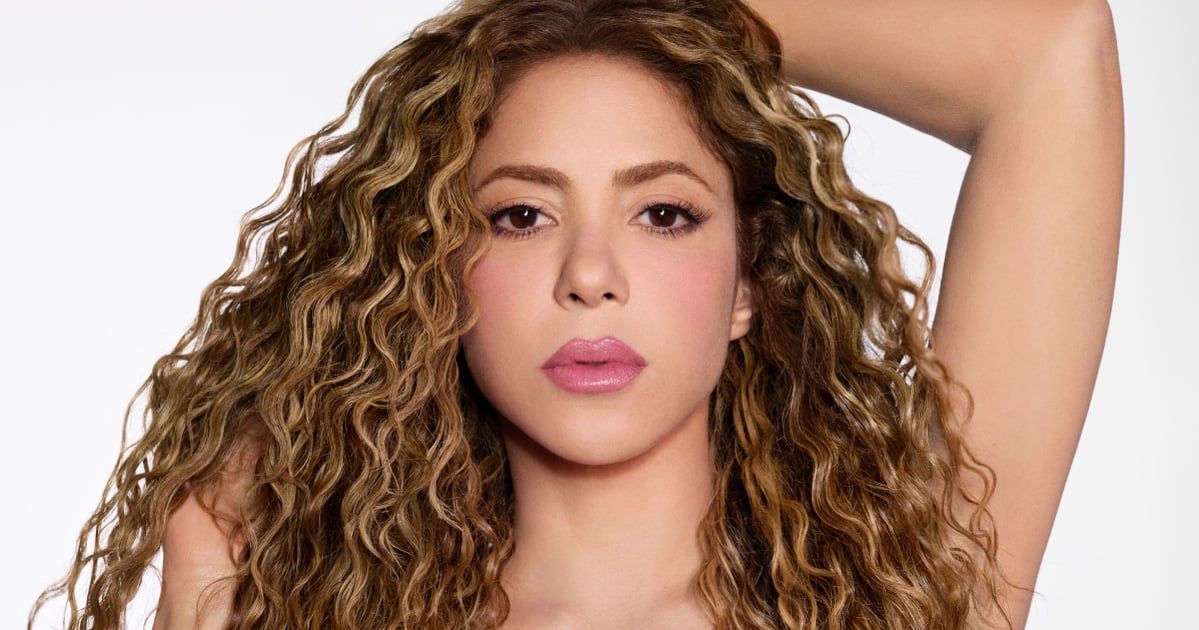
Shakira about “Pelo Bueno” and her new Ulta Beauty Line Isima

OverseasOverseasWhile each displayed product is selected independently by our editors, we can include paid action. If you buy something on our links, we can earn commissions. You can find more information about our product evaluation guidelines here.
Show me a curly girl and I know immediately: This is someone who has a complicated relationship with her hair. Curly hair is never just hair – it is a story of fussing and repositioning. Behind every curl there is a memory, a myth, a story and the journey of the growth to love what had to be tamed.
Even Shakira-nor god-like curls are as iconic as their voice-there. After years of experimenting with treatments, products and even with a pharmacist to develop her own tailor-made formulas, the Colombian singer dreamed of a line that could find the other curly girls' especially Latinas. Enter Isima, a new series of innovative products that are made for curls, only available from Ulta.
In contrast to most curly Latinas, especially those of their generation-murdered Shakiras fight with their hair from the cultural pressure to style it. While she occasionally wore a slim style or a fresh blowout, she mainly accepted her natural texture, especially when she appeared live.
“I think I had no choice because when I'm on stage, I have to feel strengthened – I have to feel true to myself,” she says to PS. “I'm free. I can't wear super high heels. I can't wear a wig.”
Shakiras complicated hair trip was caused by the damage with dyeing, heat styling and treatments such as Brazilian keratin.
She tells that her healthiest hair days were before she started to color it – when she was still wearing her natural color.
“It used to be whether they believe it or not, really dark – almost black,” she says. “[It was] Very shiny and wavy. I had soft waves. I think with years and hormonal changes, the texture has changed quite a bit. It has become a little looser, I would say and even more powerful. “
True Shakira fans who follow her career and have reminded her music since the “Pies Descalzo” and “Dónde Están Los Ladrones” days on their long dark hair, as we remember their red hair phase.
“I decided to bleach it and make it bright red [and] Obviously I really had to switch from almost black hair to red. So my hair suffered a lot and that was the beginning of the end, “she says with a laugh.” But it was still a very important part of my identity. That was about the time when I didn't trigger MTV, and I did with a kind of punk, red hair that was an era and a time in life. The way I wear my hair has a lot to do with how I feel. It has always been a large part of my identity. “
While many curly women-intared Latinas and Black women's studs take on the expression “I am not my hair” (allusion to India Aries legendary single from 2006), many of us also recognize the deep connection between our hair, our identity and how we appear in the world. In interviews, Shakira himself admitted that cutting her hair in a short praise of one of her greatest regret – she just didn't feel like herself. As a curly girl with even closer curls than Shakira, I report. Every time I broke my long curls into praise, I felt as if I was losing a superpower. It is women like us – Latinas like us – who inspired Shakira to think of a line that really understands and fulfills the special needs of our hair.
“Women like us are understaffed in a way,” she tells me, after accompanying my hip-length curls-a mixture of 3B and 3C spirals.
I didn't always hear compliments on my hair; In fact, I grew up when I had “Pelo Malo”. For those unknowns, Pelo Bueno (“good hair”) and Pelo Malo (“bad hair”) are rooted in colonial Latin America, and come from the Casta system – a racist hierarchy that was imposed by the chip, which preferred the proximity to the white. Cily and curly textures were often associated with the hair of enslaved black people and were undesirable, a harmful legacy that further shaped the Latin American beauty standards. But in the past ten years, younger Latina has started to win back and redefine these terms, including Shakira, who believes that good hair simply means healthy hair.
“Pelo Bueno is hair that is put down – [it’s hair] That is natural. [Hair] That makes you sure and that's healthy, “she says.” So it doesn't matter which texture your hair is. It just has to feel as if they love him. “
“Pelo Bueno is hair that is put down – [it’s hair] That is natural. [Hair] This makes you feel safe and that is healthy. “
Since curly hair is particularly susceptible to dryness and fracture, ISIMA focuses especially on deep fluid intake and repair.
“This is inspired by Latina women because there is so much diversity in my community. In Latin America you will find all types of textures,” she says. One of the most popular Shakira products in the line is the Súperbomba Triple Repair Peptide mask ($ 38), a rich, deep-conditioning treatment that checks all boxes. With patented nonapeptides, hydrolyzed soy and rice proteins and a unique glyconabond complex formulated, this product is designed so that the scalp nourishes the scalp, repairs hair bonds and delivers intensive liquid intake after each laundry. Shakira uses it once a week and, depending on the schedule, gives it for five to 10 minutes.
And while countless prominent beauty brands have launched the market, only a few provide the way ISIMA does. Shakira really thought about every step of the Wash Day – a ritual that she calls sacred.
“On the day I wash my hair, I know that I get peace for at least five minutes, where my children don't interrupt my shower,” she says. “My assistant is not in. So I need these minutes to really count.”
From start to finish she thought of everything. Instead of just offering a shampoo, ISIMA includes two. There is reset (32 US dollars), a clear shampoo that deeply cleans the scalp without removing the hair. Then there is Riquísima (32 US dollars), a moisturizing shampoo that is infused with Mexican Aloe extract, which gently cleans and fills in moisture again -ideal for detection.
Shakira is also the first founder of the curly hair brand, which a blue shampoo especially for color-treated curls brings on the market-a game changer when you consider how hard most blue and purple shampoos can be on structured hair.
There is also Suavísima ($ 32), a rinsing product that is so moisturizing that I was able to skip the hair masks on busy washrooms and still have silky curls.
Shakira likes to have curls that do not lie (32 US dollars) – a correspondingly named curly cream – to a soak moisture hair that goes away before they seal everything with Delicia Repairing Hair Oil ($ 36) for an additional moisture boost.
“I know for some people that it feels difficult, but no, I need that,” she says. “I think women like us need more. It's like the sentence – less is more. But it doesn't apply to hair like ours. We need more. We need more fluid intake, more moisture, more power – everything.”
The line also includes all in ($ 32), a restorative Leave-in conditioner that can be used instead of the curly cream or thus layered for additional fluid intake. It is light enough for looser waves, but rich enough to deliver serious moisture. Then there is an icon (42 US dollars), a scalp serum that hydrated, calm and equalize the scalp and at the same time promotes stronger, healthier and thicker strands.
Let's just say that he was chosen by chance. In Spanish, “ísima” is a superlative suffix that inspired the names of your shampoos and conditioners – as in Riquísima (very rich) or Suavísima (very smooth). Shakira brought the same thoughtfulness into the packaging: the shampoos and conditioners are delivered with pump dispensers and fully removable caps so that they can get every last drop.
As someone who grew up in Dominican hairdressing salons in which I had just blown out my curls every weekend to hide any trace of texture, I rarely saw that celebrities openly inspired others to hug their natural hair. There was a certain way to carry my curls – long, fluid and full of definition. But very few celebrities reflected this vision. The only ones who came nearby were Keri Russell in “Felicity”, Jennifer Freeman and of course Shakira.
The fact that one of my actual hair icons not only launched a curly line that was designed especially for women like me, but also sat with me and personally guided me through the products that were best suited for my spirals, felt surreal. It was an honor.
“I have a career music for 30 years and I have the feeling that I have a certain credibility. I want to make sure that these products deliver what they promise,” she says. And frankly, the quality speaks for itself – it is clear that she has prepared her whole hair life for this moment.
Johanna Ferreira is the content director of PS Juntos. With more than 10 years of experience, Johanna focuses on how intersectional identities are a central component of Latinen culture. Before that, she was spent as deputy editor at Hiplatina for almost three years and worked for numerous outlets, including Refinery29, Oprah Magazine, Allure, Instyle and Well+Good. She also moderated and spoke about numerous panels about latine identity.



























